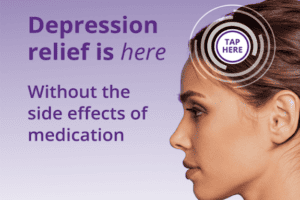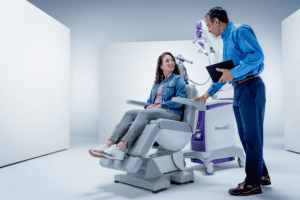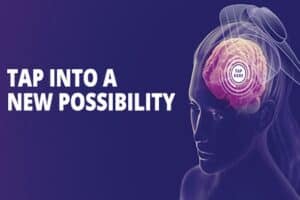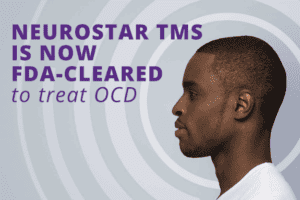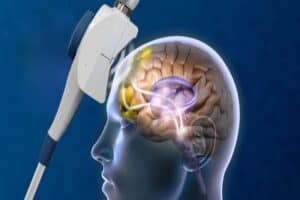Now Offering Neurostar Advanced TMS Therapy
TMS for severe depression is within reach. We use NeuroStar transcranial magnetic stimulation (TMS) to target key areas of the brain. Areas that are under-active in people with depression. It is not electroconvulsive therapy. The exact cause of depression is still not known.
The leading scientific theory is that it is due to an imbalance of the brain’s neurotransmitters. Neurotransmitters are the chemical messengers that send signals between brain cells. During a NeuroStar treatment session, a magnet, similar to those in a magnetic resonance imaging (MRI) machine, is used to stimulate nerve cells. Stimulate areas of the brain thought to control mood.
Try TMS – A Proven Alternative Treatment for Depression
The 10-question Patient Health Questionnaire (PHQ-10) is a diagnostic tool introduced in 2001 to screen adult patients in a primary care setting for the presence and severity of depression. It rates depression based on the self-administered Patient Health Questionnaire (PHQ). The PHQ is part of Pfizer’s larger suite of trademarked products, called the Primary Care Evaluation of Mental Disorders (PRIME-MD). The PHQ-10 takes less than 3 minutes to complete and simply scores each of the 9 DSM-IV criteria for depression based on the mood module from the original PRIME-MD. Primary care providers frequently use the PHQ-10 to screen for depression in patients.
Click Here to Assess Your Depression
Proven Depression Relief That Lasts
83% of patients completing NeuroStar treatment experienced measurable depression relief, and
62% experienced full remission of their depression symptoms.
The #1 physician-recommended TMS treatment, accepted by most major insurance
If you’re grappling with Major Depressive Disorder (MDD) and have yet to discover relief through medications, NeuroStar presents a potential solution. With over 300 million individuals covered by insurance plans that include NeuroStar therapy, such as Medicare and Tricare, access to this treatment option is widespread.
Treating depression at the source
NeuroStar employs targeted magnetic pulses, akin to those used in an MRI, to rejuvenate dormant synapses in the brain. This process of “awakening” these connections can significantly impact neurotransmitter levels, offering the potential for long-term remission from depression for many individuals.
Not drugs, Not Electroconvulsive Therapy (ECT). What to expect
NeuroStar Transcranial Magnetic Stimulation (TMS) treatment requires neither sedation nor anesthesia, and there’s no downtime following sessions. It doesn’t affect your alertness, allowing you to drive home afterward and resume your regular activities.

